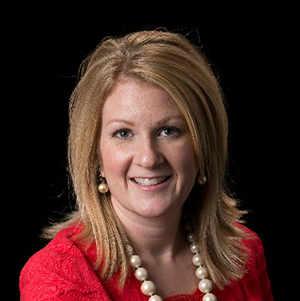In this Article

What Is Health Science?
Health science combines science and healthcare for a number of careers that focus on improving the healthcare industry and delivering quality care to patients. No matter which area you choose, you’ll use a combination of science, technology, engineering, and math (STEM) expertise.
Health science is an interdisciplinary field that involves applying concepts from the natural and social sciences to aspects of health, disease, and healthcare. Health science includes a wide range of careers from patient care to medical testing and healthcare management.
“According to the U.S Bureau of Labor Statistics employment projections through 2032, healthcare is projected to add the most jobs in all industries due to the taking care of the baby boomers, longer life expectancies, and more people with chronic conditions,” says Marcy McCarty, MBA, RT (R) (N), director of the Bachelor of Science in Health Sciences program and assistant professor of Healthcare Administration at Pennsylvania College of Health Sciences.
“While the employment projections in healthcare focus more on the front-line healthcare professionals, there is an opportunity for those with health science degrees to create different pathways within the industry.”
With a degree in health science, students have opportunities to advance in a range of directions that involve administration, research, sales, teaching, and advanced clinical positions such as a physician assistant or a physician, McCarty says.
Steps to a Career in Health Science
You may enjoy a career in health science if you want to work toward improving and making a difference in the health of people in need. It also helps to have an interest in STEM since many positions involve the application of scientific research and methodology to support different aspects of clinical practice.
Choose a career.

A career in health science can involve opportunities ranging from research to patient care. Since health science careers can require different skills and education, it helps to define your area of interest and career direction to determine the specific knowledge and experience you need to reach your goals.
Pursue a degree.

A health science degree is typically a flexible interdisciplinary degree that includes options for working toward specific areas of interest. Depending on your career goals, time, and financial situation, an associate, bachelor’s or master’s degree in health science may be appropriate.
Earn practical experience.

If you’re interested in a health science position that involves patient care, you may have to meet experience requirements either during or after your education to qualify for employment. Positions that require state licensure have strict criteria regarding the experience that candidates must meet.
Get certified.

Specialty certifications can help you demonstrate your mastery of advanced professional skills and knowledge in your field. While these certifications are typically optional, some may be required for employment and/or licensure, depending on your role.
Health Science as a Major
Health Science is a robust and versatile major. It can be general enough to give you flexibility in your future career, or it can be the foundation for specializations like radiography and nuclear medicine.
Those who major in health sciences may work in schools, hospitals, government agencies, in public health or administration, or for non-profit groups. Your choices are virtually limitless in this dynamic and critical healthcare industry.
To help you navigate this broad spectrum of degrees and careers, we’ve created a guide to health science majors, degree programs, career information, and salary and job growth data that can help you home in on where you want to focus your interests and skills.
What You Can Do with a Health Sciences Degree
As with other healthcare fields, your job in health sciences will provide the choice of either working clinically or in the more academic, administrative, and research arenas. Where you work will depend upon your interests. Health science careers can generally take five paths, based on services and technology.
Diagnostic Services
These services involve diagnosing a health problem through monitoring new and existing problems and following up on any abnormalities with labs, such as recommending a mammogram for a breast abnormality.
One example is medical imaging. Radiology technologists use X-rays and other technology such as magnetic resonance imaging (MRI), computed tomography (CT), and sonography to create accurate images of a person’s body. These images are used by physicians to diagnose and treat a condition, disease, or injury.
Therapeutic Services
You’ll help patients heal by providing direct care, treatment plans, counseling services, and education about their illness or health condition.
Support Services
This includes the large and crucial group of aides and assistant roles—from medical assistants to veterinary assistants—that support primary care providers and patients in all areas of healthcare, including psychiatric, medical equipment, and home health.
Medical assistants perform a range of administrative and clinical tasks that vary based on the location and type of workplace. They typically work in the offices of physicians and at hospitals and other healthcare facilities where their duties can include recording patient information, taking vital signs, scheduling appointments, and preparing samples for laboratory tests.
Health Informatics
If your strength is technology and you want to work in the healthcare industry, this area of health science is for you. Health informatics is the application of information technology (IT) to the planning, delivery, analysis, and management of healthcare services.
Biotechnology Research and Development
Moving into research and more scientific areas of health science, biotechnology research and development professionals study disease to create treatments and antidotes.
Biochemists and biophysicists study the chemical and physical principles of living organisms and biological processes by conducting basic and applied research. They use advanced technologies to study concepts in areas such as cell development, growth, heredity, and disease to produce or modify useful products and treatments.
Examples of Health Science Careers
As health sciences is an unusually broad field with an array of career choices, your salary and job growth may depend on the area you enter as well as your education. Here are some examples of the variety of top careers in health sciences.
Health Science Degree Programs
Health science degree programs are available at every level—associate, bachelor’s, and master’s. Here’s a look at the general purpose of each.
Associate Degree in Health Science
An associate degree in health science can be a practical way to start your healthcare career. It generally takes two years to complete, and many programs offer a wide range of specialty areas that you can pursue, including dental hygiene and medical assisting.
A health science associate degree is often considered a springboard to higher degrees and specializations. If you decide to pursue an advanced degree later, you may be able to apply credits from your associate degree and save time and money.
Bachelor’s Degrees in Health Sciences
A four-year program in health science will provide a thorough humanities education with a degree that’s focused on a healthcare specialty area.
In addition, you may be required to complete a capstone project under the guidance of a professor or supervisor.
While the bachelor’s degree still embraces the interdisciplinary nature of health sciences, it provides many options for students to prepare for specific careers. Here are some examples of possible bachelor’s program tracks:
The “pre-professional” studies track provides a foundation for a medical-related career and post-graduate programs that specialize in advanced areas such as chiropractic and optometry.
General healthcare studies programs provide a liberal arts and humanities base and help you prepare for entry-level positions within the healthcare industry.
Advancement programs are for those already working in the industry with a two-year degree and want to advance within their current industry or pursue graduate degrees.
Research tracks provide an opportunity to study biomedical sciences, data, epidemiology, and biostatistics in preparation for a career in research.
Healthcare informatics is for those who plan to specialize in technology and the use of electronic health records and data analysis.
Public health tracks educate students in public health principles, issues, and policies.
Master’s Degrees in Health Sciences
With few exceptions, senior professionals in health science will want to earn a master’s degree. More and more, a graduate degree is expected for executive roles. When you achieve this level of education, your earnings may rise significantly.
For students who want to move into administration or public health, a master’s degree in health science (MHS) allows you to home in on your area of interest. Many master’s programs offer the opportunity to specialize in regulatory affairs, research, administration, or healthcare quality.
The MHS also helps currently employed professionals expand their skills. Other common master’s degree programs include the Master of Public Health (MPH), the Master of Science in Nursing (MSN), and the Master of Health Administration (MHA).
A master’s in health science also may require fieldwork, research, and/or projects, depending on your area of concentration. At this degree level, a thesis may also be required.
Doctorate in Health Sciences
The Doctor of Health Science (DHS or DHSc) is typically a highly specialized degree designed to prepare professionals for senior roles in healthcare or health science. Some prepare graduates to conduct research or implement solutions. Another track may be to prepare you to teach in advanced academic and clinical settings.
You’ll likely be required to gain experience through an internship and practicum as well. In most doctorate programs, you’ll also have a doctoral thesis to prepare and present at the completion of your program.
Online Degree Options
If you’re concerned that an online program may offer a different curriculum than a traditional program, you’ll be happy to know that the coursework should be nearly identical. In addition, you’ll have access to your professors and classmates, just as you would in a brick-and-mortar school.
However, if you choose a clinical or research track, you’ll need to complete labs, clinical work, research, and/or fieldwork onsite in a healthcare facility approved by your degree program—just as you would in a campus program.
Health Science Practicum or Internship
As a budding professional, you will want to put your education into practice. This applies to all students, not only those who are working toward professions in clinical practice. When you complete a practicum or internship, you will not only earn credits, but you’ll also have valuable, real-world experience when you sit down for your first interview with a potential employer. In fact, you might be able to convert a practicum into a job opportunity or lay career groundwork with a network of contacts and referral sources.
Schools often refer to practicums and internships interchangeably, so it’s important to understand the type of fieldwork you could be required to complete. A practicum is typically designed to provide supervised, practical work experience in a specialized field of study. An internship may require you to perform duties similar to those of a future position, sometimes with a stipend for your services.
International Practicums
Some schools offer the opportunity to pursue a practicum overseas. For instance, you could put your knowledge of public health to the test in a European country and learn how other cultures approach the public good.
Alternately, you might study the impact of the environment on health in a Third World nation. If you want to study abroad to see different approaches to healthcare, pursue a program that offers this as an option. Even if your school does not have such a program, you might be able to participate in another school’s international program and transfer the credit back to your alma mater.
Always seek out solutions that will work best for you and your goals. Your advisor is sure to support you in finding the options that suit you best.
Accreditation
Accreditation is the seal of approval issued by peers within the educational system and industry who frequently examine schools and their coursework to ensure they meet industry standards and prepare you to perform at the highest level.
Benefits include:
Make sure your school and program are accredited by a regional or professional commission or agency so you’re sure you’ve graduated from a quality program.

With professional insight from:
Anna Giorgi
Contributing Writer

With professional insight from:
Marcy McCarty, MBA, RT (R) (N)
Program Director, Bachelor of Science in Health Sciences, and Assistant Professor, Bachelor of Science Healthcare Administration, Pennsylvania College of Health Sciences